Mumbai Woman’s Startup Sells 300+ Organic Foods From 10,000+ Farmers!
“My end goal is to empower small scale farmers’ communities. I want to help them become self-reliant and climate-resilient,” says the Mumbai entrepreneur. #FarmersFirst #WomenEntrepreneurs
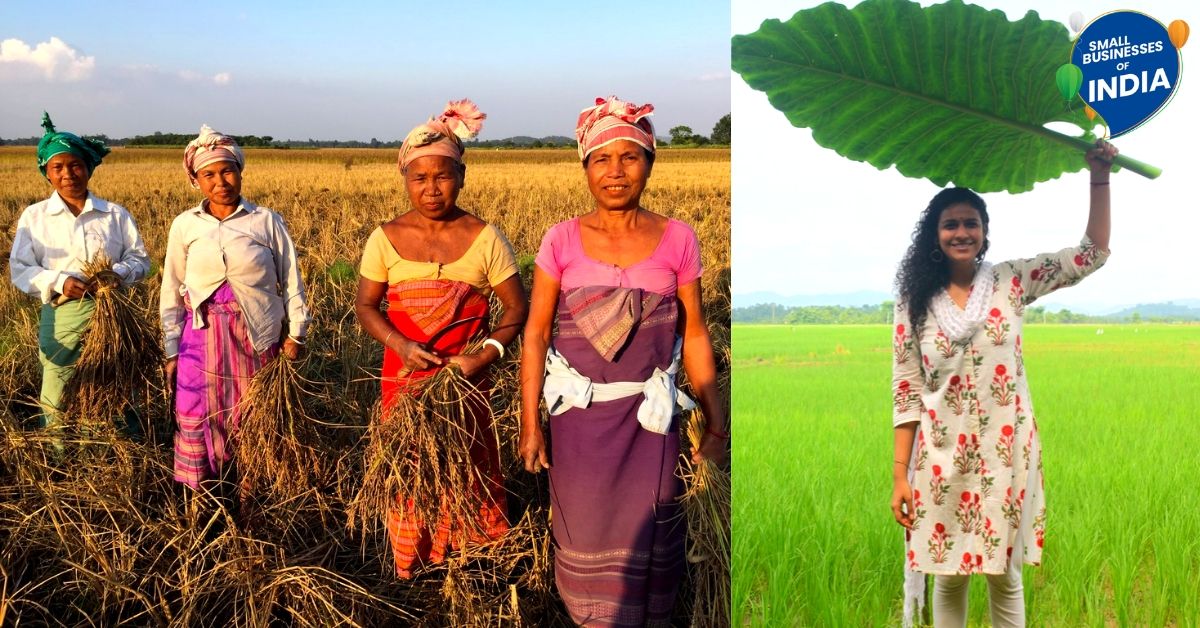
Mumbai-based entrepreneur Ruchi Jain grew up in a household that revered fresh harvest. She saw how her mother put immense thought into what ended up on her family’s plates.
“My mother was very particular about the food we ate. The focus was always on eating fresh and organic produce which we grew at home. In fact, we have a food forest at home itself where there are trees like moringa, amla, guava, mulberry among others,” smiles the 33-year-old with a Master’s degree in Environment Change and Management from Oxford University.
Ruchi’s post-Masters work with a World Bank project took her to the rural landscapes across India which further added to her pre-existing knowledge base of environmental issues and the plight of the Indian farmers.
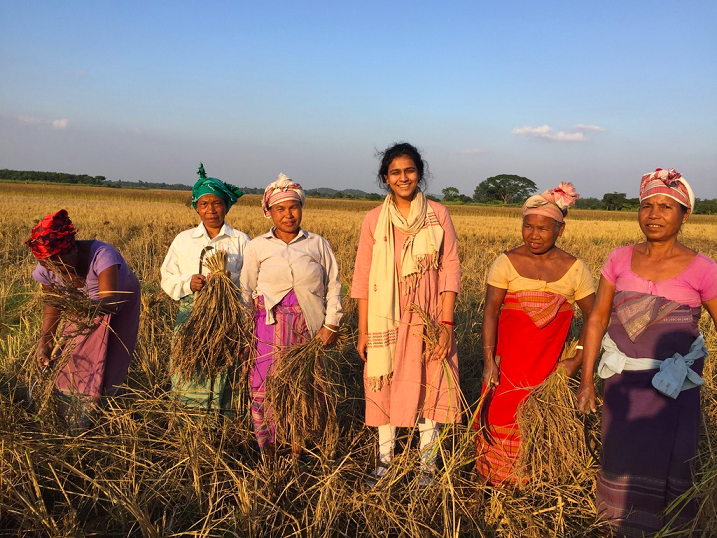
This knowledge and reverence for nature, and the sensibilities of the effort of India’s farmers translated into a startup which would go on to impact over 10,000 farmers in 14+ states.
Founded in 2016, Taru Naturals is the manifestation of Ruchi’s learnings. The startup sells organic produce like turmeric, jaggery, rice, pulses sourced from farmers across Maharashtra, Karnataka, Assam, Kerala, and Uttarakhand among others. It helps farmers establish market linkages and ensure a steady stream of income.
They source over 50 tonnes of organic produce in a year! Not just that, they have over 300 different kinds of products on their platform and in addition to supplying to customers, they also take bulk orders and cater to over 70+ restaurants and cafes across the country!
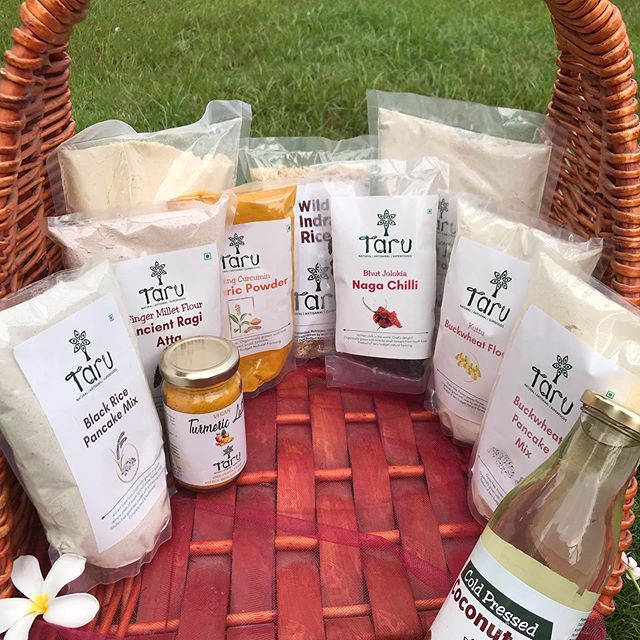
In fact, on Women’s Day, i.e. March 8 this year, this young female entrepreneur’s hard work found mention in NITI Aayog’s list of 15 women transforming India. Another feather in Ruchi’s cap was the Condé Nast Brand of the Year Award in 2019.
From a Climate Change Advocate to a Successful Entrepreneur
“I wanted to create awareness and help people acknowledge the wonderful ingredients that exist on our land. At the same time, I also wanted to work at the grassroots and there was no better way to bring about transformation than by empowering farmers because I truly believe they are the first entrepreneurs we have had in our country,” she says.
Despite this passion to bring a change in people’s lives at the grassroots level, and her keen interest in farming and food, it wasn’t a path Ruchi had initially sought after.
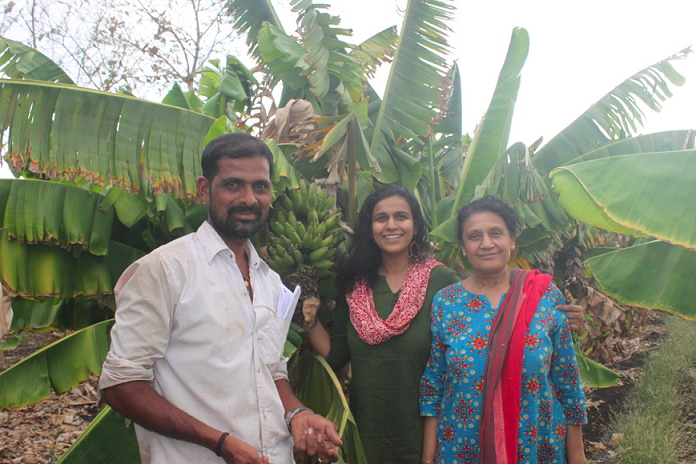
Once she had completed her Bachelor’s in Political Science from St. Xavier’s College, Mumbai in 2008, she joined the Indian Youth Climate Network (IYCN) where she worked for over two years. Wanting to add to her environmental knowledge, she pursued her Master’s in Environment Change and Management from Oxford University in 2010.
Soon after, she joined a World Bank project where different business models were being tested for the scalability of off-grid renewable energy solutions. This is when she travelled across states like Assam, Uttarakhand, and Maharashtra.
Although she toyed with the idea of a career in the Civil Services as a way to serve the marginalised, she decided to quit her job in October 2014 and pursue the goal through her own venture.
Facing Failures before Cementing her Ground
There were a bunch of options and Ruchi tried out all of them before finally zeroing on selling organic foodgrains, spices, and oils sourced from farmers all over India.
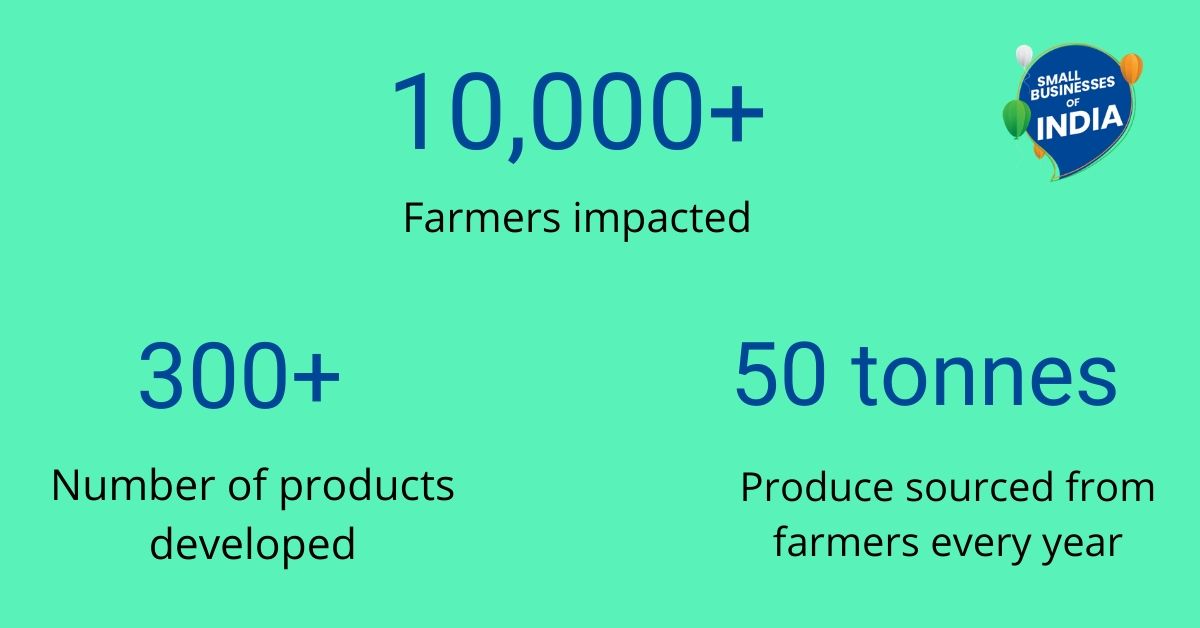
At first, she was freelancing and providing consultancy services on projects involving subjects like women’s entrepreneurship, renewable energy among others. She also continued to travel across villages in the country to understand what her subject of focus would be.
“At first, I saw that a lot of women in rural households did not have access to cookstoves and they would mostly use chulhas. So, I thought I could work on providing clean cookstoves. But I soon realised that this isn’t the best idea for cash flows and with increasing LPG connections in the rural area, this did not make sense. So, I ditched it,” says Ruchi.
Next, she thought she would explore a microfinance startup or start a company that dealt with solar lighting systems.
“But, I just couldn’t figure out how to go about it. At one point, I was really thinking about what I was doing with my life,” she says. But, Ruchi’s farm visits did not stop and this was the saving grace. She happened to visit Phaltan in Satara and spoke to farmers there. It is here where she realised that what the farmers needed market linkages and she could offer that.
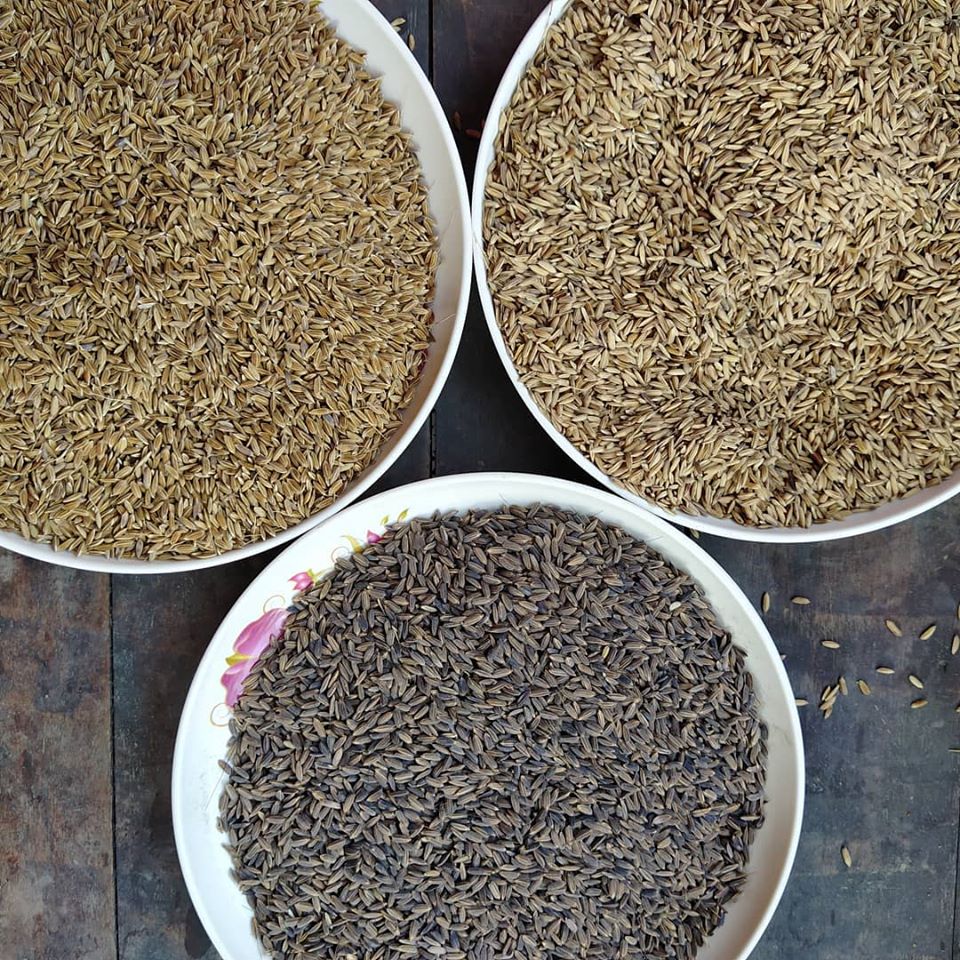
Ruchi decided to start experimenting by first selling jaggery to see how people responded to the product. With an investment of Rs. 2,000 she bought 20 kgs of jaggery which she packed at home and sold to her friends and relatives via WhatsApp.
Within a week, everything was sold out and this pushed her to explore this idea further. She slowly started procuring more produce like dals, rice, atta, millets and started selling it in fairs and pop-ups in early 2015.
“It was successful and all the products were sold out in three days. That boosted my confidence and I felt like I was moving towards the right direction,” recalls Ruchi. Finally, she founded Taru Naturals in May 2016 which was later incubated by UnLtd India, an organisation that supports social entrepreneurs.
She decided to focus on a few products like turmeric and jaggery. The jaggery was powdered and packaged in sachets to be sold in cafes and restaurants. Slowly, she also started selling fresh produce like mangoes, grapes, pomegranates, and different kinds of vegetables.

But, because she was short on staff and was operating a B2C model, it became difficult for her to manage operations.
“I would have to go myself to the railway station and pick up the fresh produce that farmers sent across. I would even deliver them on my own and it was getting really difficult. This is when I realised that when you are a small company with limited resources, you cannot sell products in bulk,” says Ruchi. At one point, she felt so burnt out that she wanted to quit the business altogether.
But, she decided to take a step back and sought guidance from Dr. Prabhakar Rao, researcher and farmer, who she met through the Art of Living Foundation that she was a part of. Ruchi took a break and while Taru’s operations were being handled by her sister. She spent six months at Art of Living while being mentored by Dr Prabhakar on how to grow food and figuring out how she would go about her business upon her return.
Renewed Focus and Reinventing her Company
Upon her return, she decided to completely stop selling fresh produce and focus more on selling dry products or products where value addition was possible. She began sourcing 10 different varieties of wheat, along with honey from West Bengal, different rice varieties from Assam, mushrooms, and saffron from J&K, spices, coconut milk, and oil from Kerala among several other products.
https://www.instagram.com/p/BzYm34rJuJd/
One of the key ingredients she started selling was high-quality black rice from Assam and that was a big game-changer for the entrepreneur.
“Camellia Panjabi, a Michelin star restaurateur based out of London, happened to taste a black rice dish cooked from grains we were supplying to Mockingbird Cafe Bar. She soon got in touch with us and ordered 500 kgs of black rice! Preparing for that shipment taught me a lot about ensuring proper quality checks and it took me three months to close the order,” she says.
There was no looking back for Taru Naturals after that. Not only did they add to their range of products, but they also started supplying to over 70 cafes and restaurants, including Taj Palace in Mumbai. At the same time, they were also catering to online orders and fixed their logistics and built up a team of 11 people in total who helped manage different aspects of the operations. On the tech front, they set up a proper website and fixed payment gateways that helped them efficiently manage their orders.
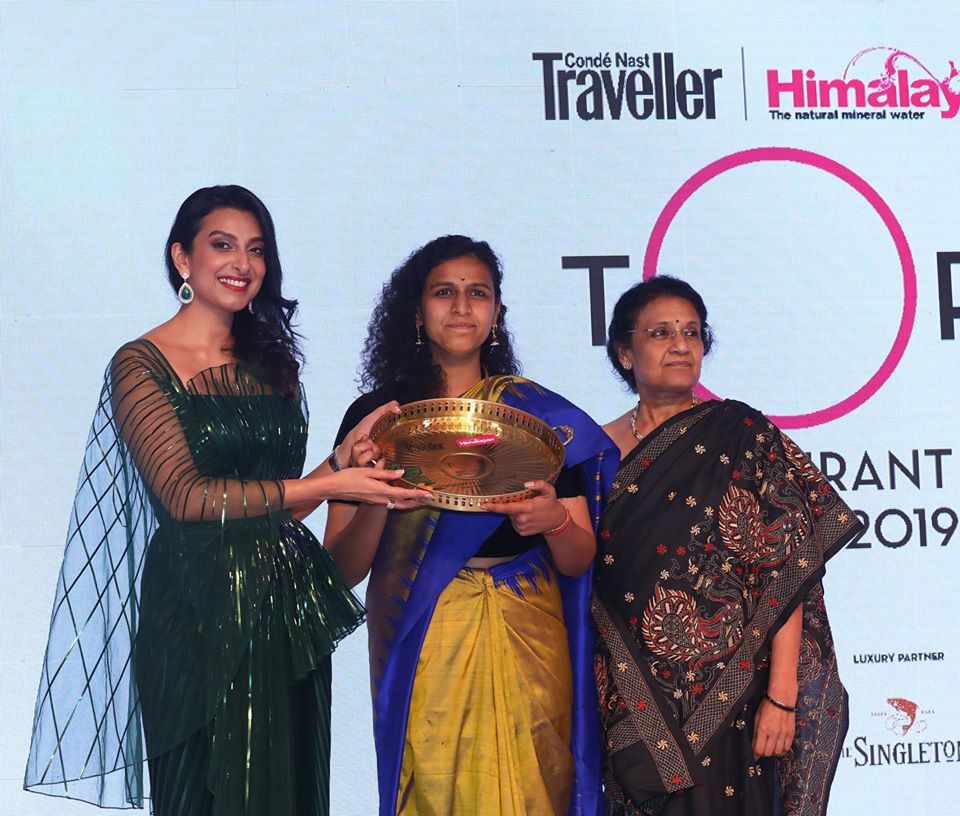
Slowly, they set up a small production unit for value-added products. They continued packaging the jaggery powder in sachets and made turmeric lattes, moong dal chilla, and pancake mixes which are gluten-free and containing healthy ingredients like millets.
Not just that, by 2019, orders from abroad also started flooding in. They began exporting six tonnes of turmeric to the US in a year! They also started exporting their pancake mixes and turmeric lattes to Dubai.
Creating Impact and Marching Forward
It has not been a smooth ride for Ruchi but with perseverance and focus, she was able to overcome the initial challenges that paved the way for seamless operations. In all of this, however, it is the farmers in association with them who have benefited greatly.
Take 34-year-old Mallikarjun Suresh Desai for example. The farmer is based out of Bedkihal village in Karnataka’s Belgaum district and has an 11-acre organic farm. He has been associated with Taru Naturals for the past four years. Now every year, he supplies about 500 to 700 kgs of grains, 250 kgs of jaggery, 40 kg and 5 kg of turmeric powder and ginger powder respectively.
https://www.instagram.com/p/ByMNNeLFWHp/
“I think the best part is that there is a regular supply chain and they give us a good price for our products. Even when we need help on the technical front related to farming, we speak to them and they help us. They also help us ensure that the quality of the products we send them is of good quality by setting high standards,” he says. Mallikarjun is just one of the 10,000 farmers in Taru Natural’s network who practice agriculture on organically certified farms.
Richi shares a few words of motivation for budding entrepreneurs.
“Persistence is the most important. As long as you work with passion, determination, and vision, you will not fail. There will be competition but if your cause is important and pure, you will succeed. Always believe in yourself and mind management is important. Therefore, prioritise your mental health and manage stress with meditation,” she says.
Ruchi has also been keeping super busy these days. She has been raising money to donate relief packages for farmers in her network during this difficult time. These packages include food items like atta, dal, oil, rice, and safety masks among others.
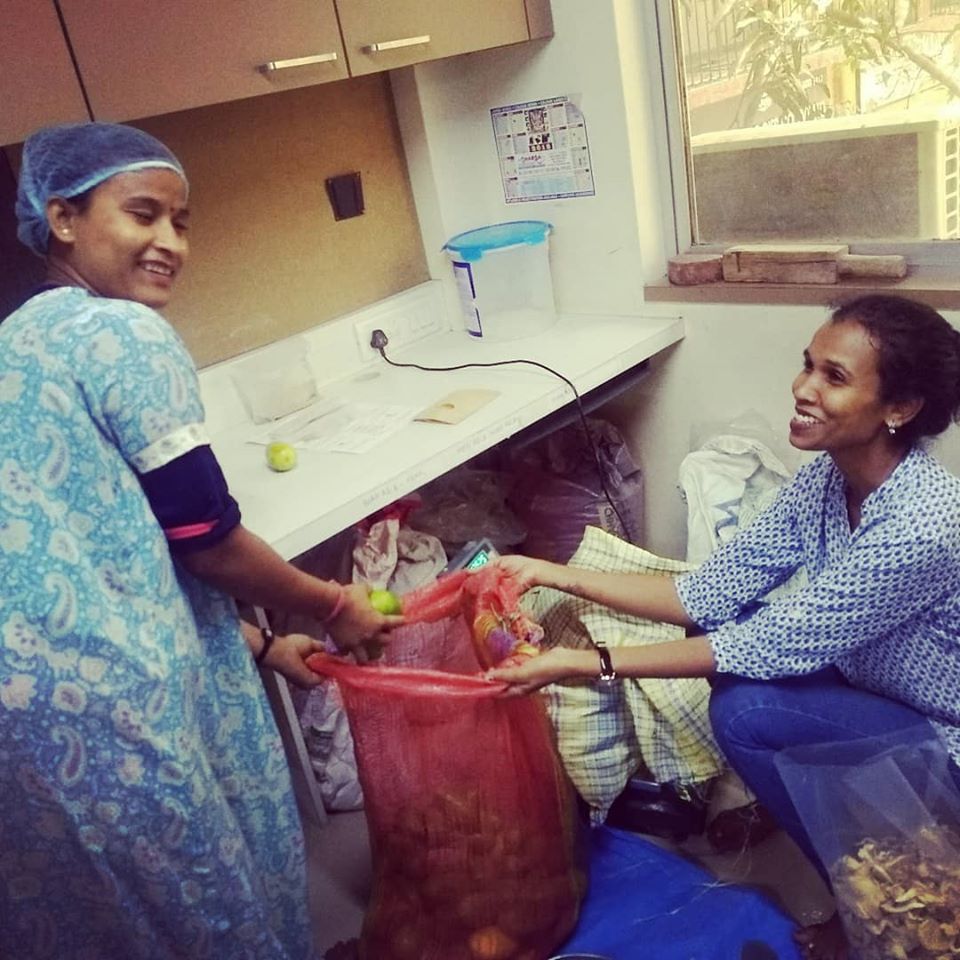
She has also been utilising this time in figuring out her plans for the future. Ruchi informs that they are working on creating products using healthy ingredients that are traditionally known to boost immunity. They are also working on launching products for kids.
“My end goal is to work with small scale farmers’ communities. I want to help them become self-reliant and climate-resilient. The goal would also be to bring traditional varieties of food into the limelight. I aspire that Taru Naturals becomes a renowned organic brand that can portray our values to the rest of the world,” she says signing off.
Rapid-fire:
*An entrepreneur you admire.
Ans: My father who runs his own business
*New tech that can transform the future of small businesses
Ans: E-commerce and QR codes for products
*One value that can help small businesses thrive
Ans: Trust and Transparency
*Your favourite book
Ans: I am currently reading Ashtavakra Gita and I quite like it
*In my free time I ____…
Ans: Practise meditation, do gardening, research on food innovations, run and travel.
* Before this interview I was ____…
Ans: Reading a book and coordinating with people for COVID-19 related relief work.
*Something they don’t teach in college but is important to run a business is
Ans: Practical skills that are needed to deal with day to challenges while running a business.
*One question I always ask people while hiring is ____…
Ans: A problem they faced in the past and how they solved it
*Best advice you ever got is to ____…
Ans: Show gratitude and acknowledge the fact that life is bigger than small problems.
Also Read: Pune Mom’s Homemade Millet-Based Baby Food Now Gets Her Over 30,000 Orders a Month
(Edited by Saiqua Sultan)
Like this story? Or have something to share?
Write to us: [email protected]
Connect with us on Facebook and Twitter.
This story made me
-
97
-
121
-
89
-
167
Tell Us More
We bring stories straight from the heart of India, to inspire millions and create a wave of impact. Our positive movement is growing bigger everyday, and we would love for you to join it.
Please contribute whatever you can, every little penny helps our team in bringing you more stories that support dreams and spread hope.



















